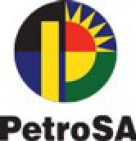PetroSA Running Out of Gas
South Africa’s state PetroSA has confirmed that it is running low on gas for its Mossel Bay gas-to-liquids (GTL) refinery, and having to boost the use of liquid feedstock.
Its statement came in the company’s annual financial results for the 2015/16 financial year, released in Cape Town November 18.
PetroSA said that “in the short-term…(it) is focussed on restoring the sustainability of the GTL refinery" for which "PetroSA engineers have successfully decreased the facility’s gas feedstock throughput rate, while also increasing the plant’s ability to process liquid feedstock.”
Acting CEO Siphamandla Mthethwa said that the company’s feedstock and financial challenges are “still a persistent and ever-present reality.”
The future of the struggling Mossgas GTL unit was discussed in the latest issue of Natural Gas World magazine, released November 16. The unit has long supplied of part of South Africa's motor fuel since 1993.

The results were overshadowed by PetroSA’s financial performance, with a net loss for 2015/16 of rand 449mn ($31.4mn) – down from a R14.6bn loss the previous year. Poor earnings were blamed on the low oil price, and lower sales volumes.
PetroSA has faced the task of keeping its Mossel Bay refinery going, after failing to discover and successfully develop new sources of offshore gas to supplement its traditional, but dwindling, supplies.
“PetroSA’s challenges have…been exacerbated by dwindling gas supplies from its Southern Cape indigenous fields,” the company stated.
Mthethwa said the company had achieved a credible performance, but warned that it remains in a perilous financial position which is “further compounded by a challenging operating environment.”
In the year to March 2016, volume sales of refinery products slumped by 17%, while sales volumes of purchased products declined by 4%. Oil and gas sales volume from its 2.73% stake in the Tullow-operated Jubilee field in Ghana were 35% higher year on year, eroded however by the fall in oil prices. PetroSA also has a same-sized stake in the TEN venture which started producing oil this summer, also operated by Tullow off Ghana.
There has been controversy in the Cape Town parliament over a decision to hold behind closed doors recent discussions of forensic reports into the activities of PetroSA, which have exposed weak management.
The role of PetroSA should be placed in a wider context next week with the publication of long-delayed government strategy documents on the future of the energy mix in South Africa, which have been approved at Cabinet level.
While state electricity utility Eskom has been lobbying hard for new nuclear power stations to be built, its critics claim that future energy needs should be met through a boosting of gas and renewables.
John Fraser


